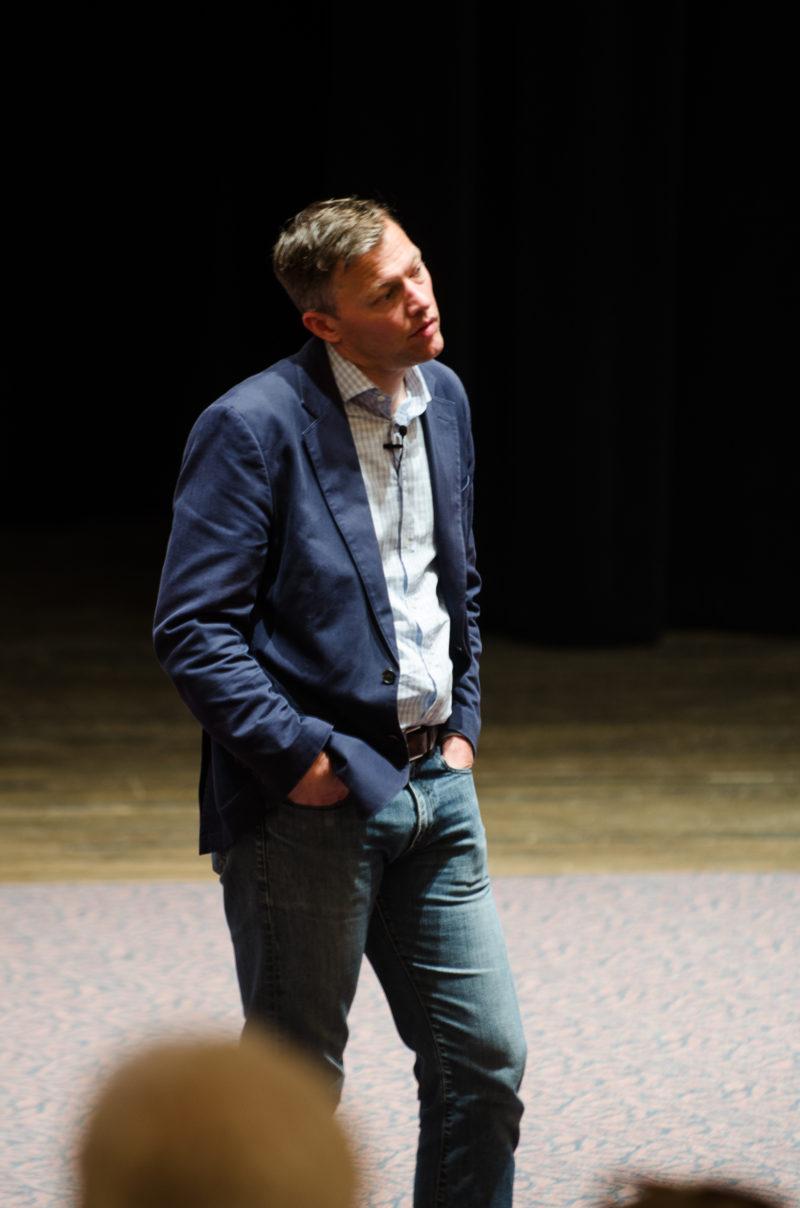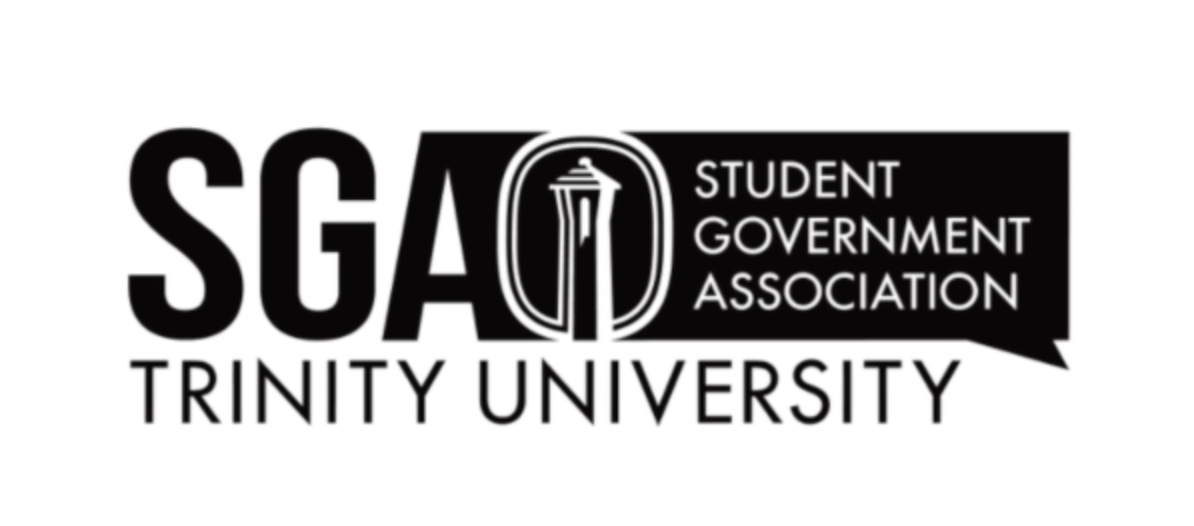Trinity’s annual Reading TUgether lecture took place on Wednesday, Aug. 23, in Laurie Auditorium. This year’s featured guest, Matthew Desmond, spoke about his book “Evicted,” an ethnographic text that studies eviction as a means of understanding American poverty. Desmond, professor of sociology at Princeton University, is currently visiting colleges across the country to speak on his Pulitzer Prize-winning book.
Lisa Jasinski, special assistant to the vice president for academic affairs, explained how a committee of diverse individuals chooses the Reading TUgether book each year.
“What they do is solicit recommendations for books that members of the Trinity community think would make a good selection,” Jasinski said. “They kind of split up this list of books that gets suggested. They each read them, and then they come back together, and they talk about why they think one book might be better or worse.”
Jasinski does not serve on the Reading TUgether committee herself, but she played an important role by suggesting the committee consider Matthew Desmond’s book, “Evicted.”
“I had just heard Matthew Desmond on the Diane Rehm show on NPR,” Jasinski said. “I heard about this book about this guy who had lived with low-income populations in Milwaukee, and what I loved about that interview was he actually brought some of the participants on the show with him because they could remain anonymous. I loved hearing about his project, and I loved hearing about the way he did research.”
Jasinski also helped with some of the logistics of getting Desmond to appear on campus.
“I called the agents of the speakers, but ultimately the committee decided and agreed that “˜Evicted’ would be a good book,” Jasinski said. “Two weeks after we signed the contract, Matthew Desmond won the Pulitzer Prize. That made it even more timely.”
In his lecture, Desmond told the stories of some of the disadvantaged individuals he met during his research and the structural forces that affected their hardships.
“I happen to think that there are a lot of systemic forces that shape people’s lives,” Jasinski said. “Sometimes those forces might feel very large and impersonal. We might say things like, “˜Well, that’s just the way things are.’ I like to believe that it’s possible to change them. I thought that his book in particular did a great job of taking something that’s abstract and invisible, and he made it so intimate and human. He has these individual cases, but he’s able to move past the anecdotal and help us see both big picture and human.”
Jasinski took a lot away from the book and hopes that students who read the book learned something as well.
“He helped me as a reader, and I think he could be really valuable for students to help them understand different parts of America,” Jasinski said. “There’s so much diversity in that book that there’s going to be something in it for everyone. I had no idea that eviction was so common and how disproportionately it affects women and children. Desmond’s work is a really powerful form of social justice. He’s changing the agenda of what we should be talking about in America.”
Chiara Pride, sophomore anthropology and political science major, attended the lecture after reading portions of Desmond’s book and left feeling motivated to read the entire book.
“He highlighted the fact that eviction is a problem that’s ignored because we focus on public housing and then focus on other marginalized groups without realizing that a lot of times it’s an issue of the private renting market,” Pride said. “That was very interesting because I vaguely knew that problem existed, but he really drove it home.”
Pride, who is interested in urban studies, took associate professor of sociology and anthropology Christine Drennon’s Research in Community Development class last spring. She recommends this class for anyone interested in the things that Desmond spoke about at his lecture or in his book.
“Drennon talked a lot about historical housing policy and how people are disenfranchised through things like redlining and structure of cities,” Pride said. “This was kind of an interesting follow-up to that because Desmond was really addressing the private market that is based in history but also is a very current problem.”
Jullian Valadez, first-year biology major, also attended Desmond’s lecture.
“I thought that the book, in conjunction with the lecture, provided a crucial insight on the topic of homelessness,” Valadez wrote in an e-mail. “The narrative wasn’t one of sensationalization, but rather a raw/grim depiction of what homelessness actually is.”
Desmond’s use of true stories deepened the experience for many who read the book.
“I found the use of narratives to be particularly engaging. The addition of a face invokes a sort of reality that empirical data, which the author used as well, alone could not. The walking through of the true lives and struggles individuals faced in America added a certain “˜identifiable person’ effect that pushes us as a community of Americans to take this issue of homelessness serious – and not as some distant problem,” Valadez wrote.
Desmond concluded his lecture by explaining his proposed solution to the problems detailed in his book: Expanding the housing voucher program. People can find ways to help the problem at a local level by visiting www.justshelter.org and getting connected with community activist and volunteer groups. “Evicted” is available to purchase online and in stores.





